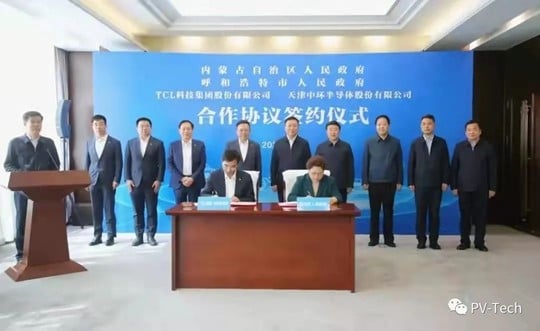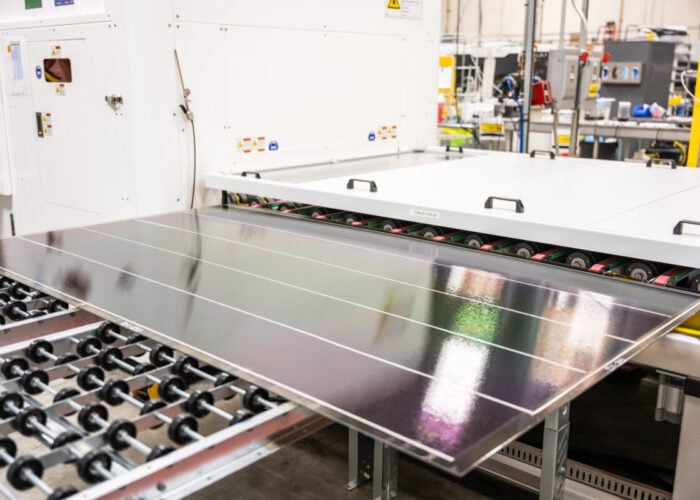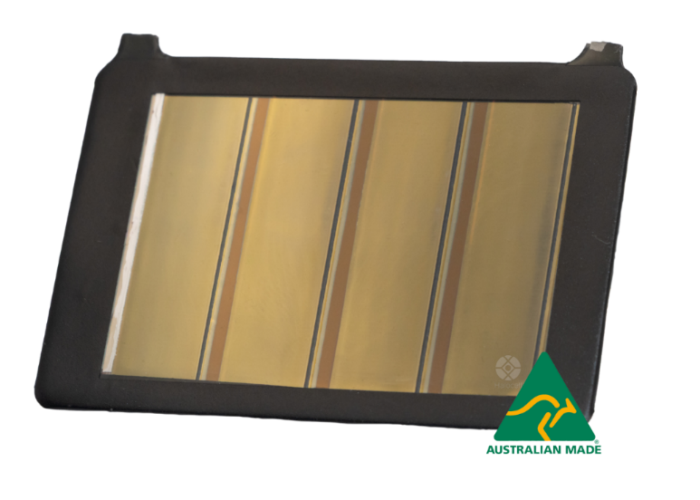
Zhonghuan Semiconductor (TZS) is to invest RMB2.06 billion (US$323 million) in a new 120,000MT-capacity polysilicon project and additional polysilicon R&D facilities in Inner Mongolia.
Late last week the TZS confirmed it had signed an agreement with both the Inner Mongolia Autonomous Region People’s Government and Hohhot City People’s Government that will see the manufacturer construct a high-purity polysilicon plant, a national silicon material R&D centre and other supportive projects in Hohhot.
Unlock unlimited access for 12 whole months of distinctive global analysis
Photovoltaics International is now included.
- Regular insight and analysis of the industry’s biggest developments
- In-depth interviews with the industry’s leading figures
- Unlimited digital access to the PV Tech Power journal catalogue
- Unlimited digital access to the Photovoltaics International journal catalogue
- Access to more than 1,000 technical papers
- Discounts on Solar Media’s portfolio of events, in-person and virtual
The terms of the deal will also see TZS receive grid connection agreements for solar PV projects in the area and favourable power price terms.
TZS said it had selected Inner Mongolia as the location for this new expansion in accordance with its existing footprint in the region, having operated manufacturing facilities in Inner Mongolia for more than a decade.
Zhonghuan claims its existing facility in Hohhot, dubbed the Zhonghuan Industry Park, is the largest mono-silicon production site in the world, with these new facilities adding to its capacity, turning the site into a “Chinese Silicon Valley”, the company said.
The manufacturer further said that the new facilities would give it a “synergistic advantage”, adding that the investments it is taking now would help the company to strategically lower costs, promote industry collaboration and stabilise the industry’s supply chain at a time of pricing volatility.
TZS’s investment comes at a time when polysilicon and solar wafer prices remain elevated. TZS has itself increased its prices for wafers four times this year, the latest pricing update – issued on 2 April 2022 – driving prices up between 2 – 3%.






